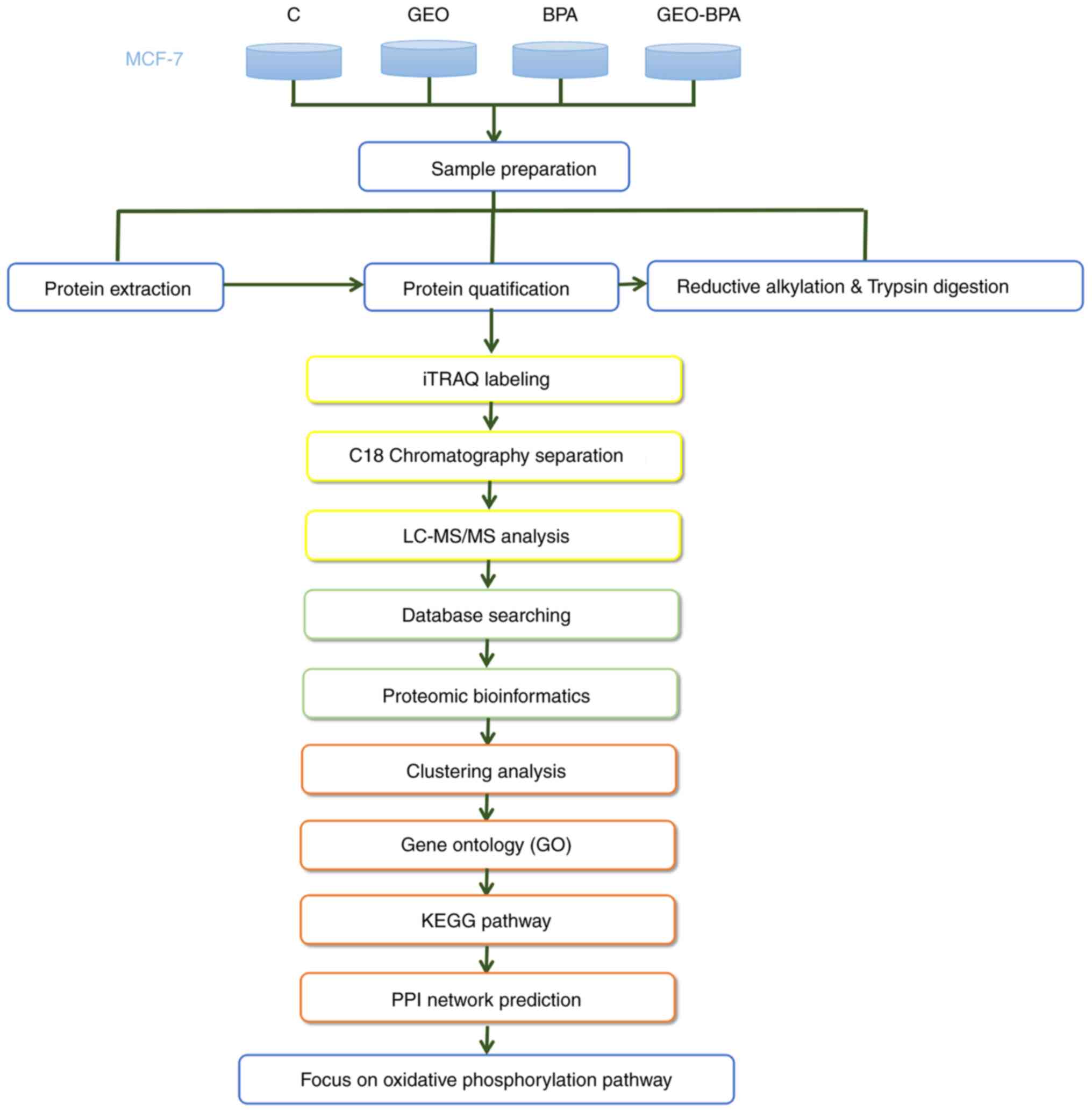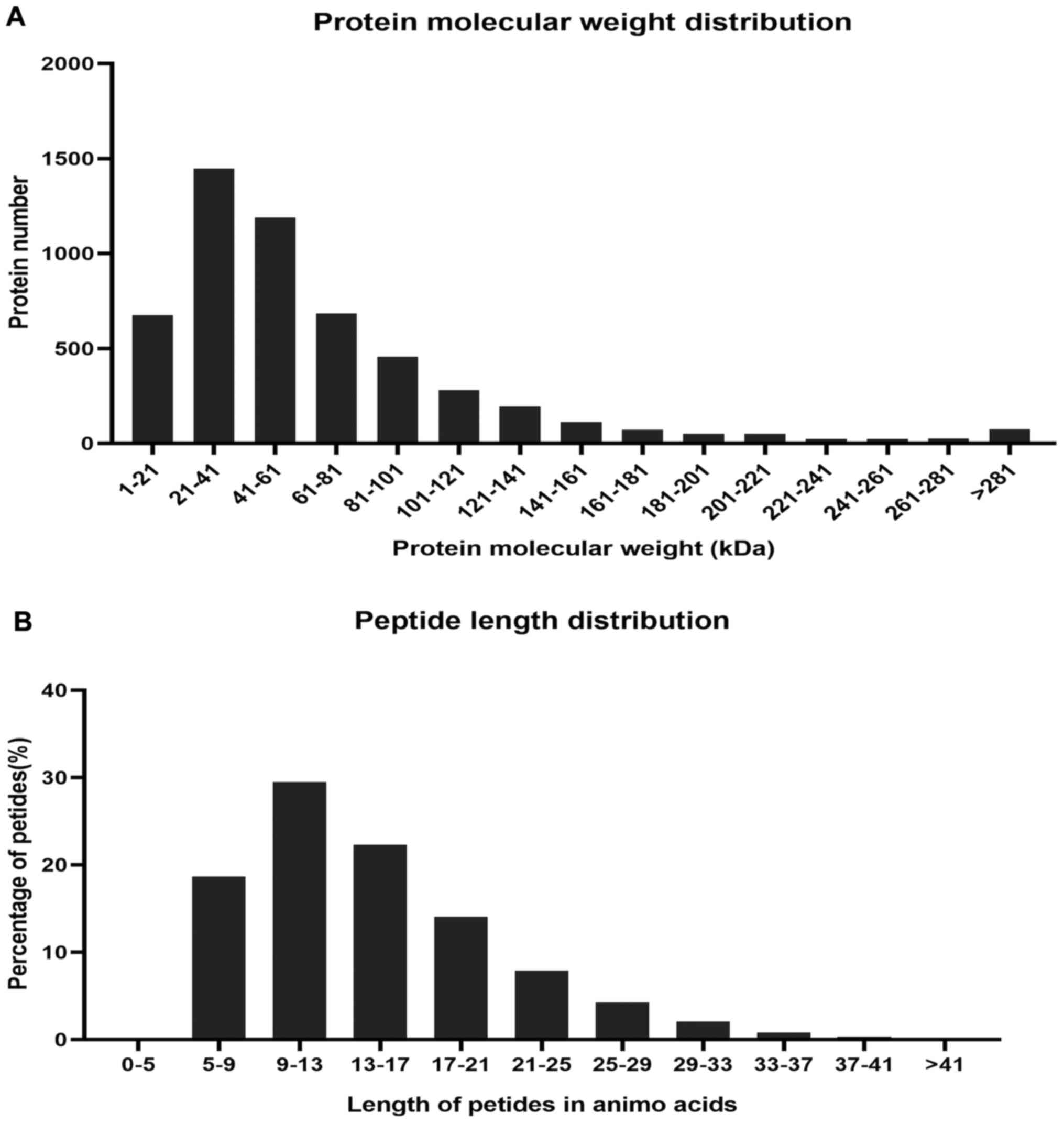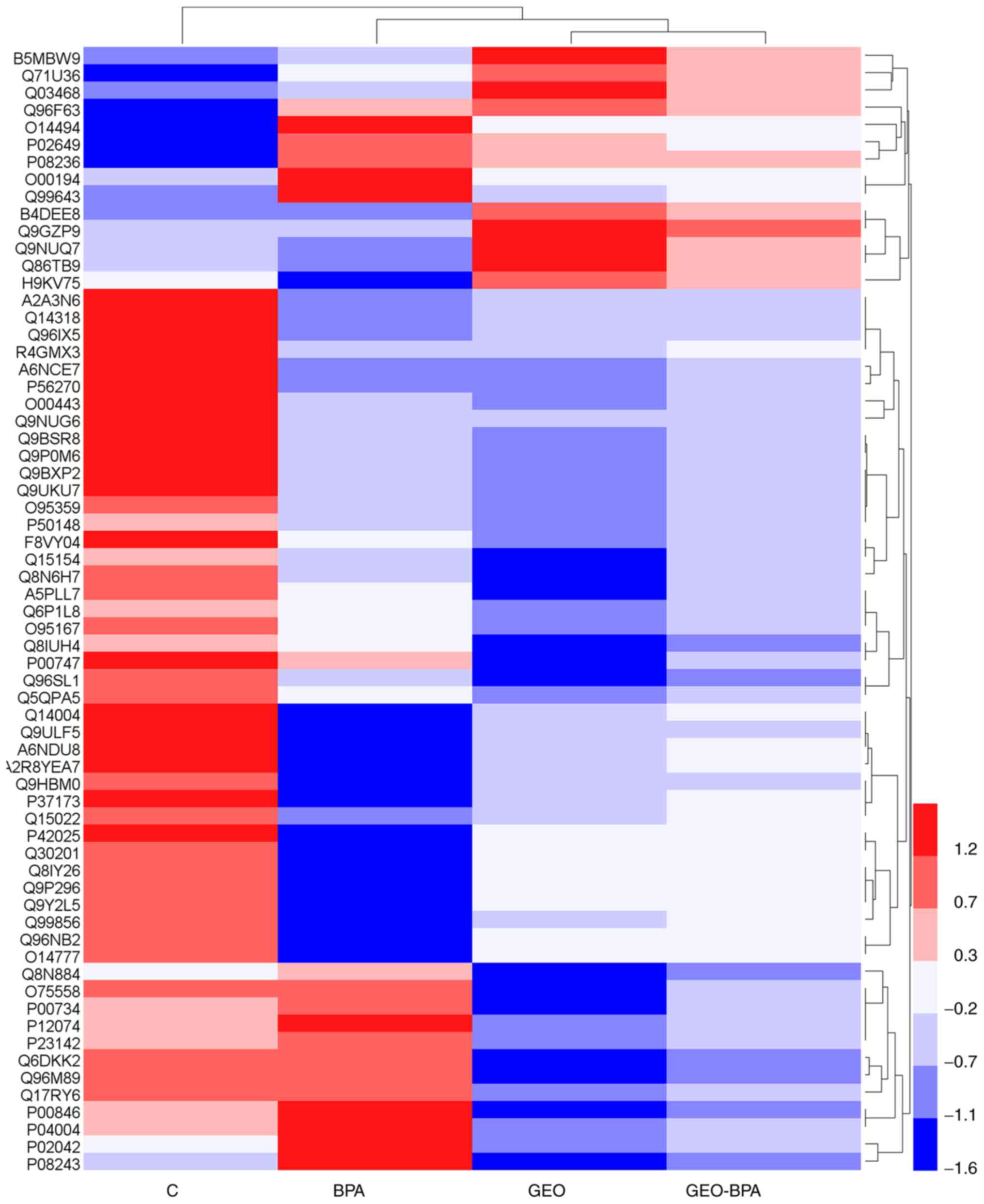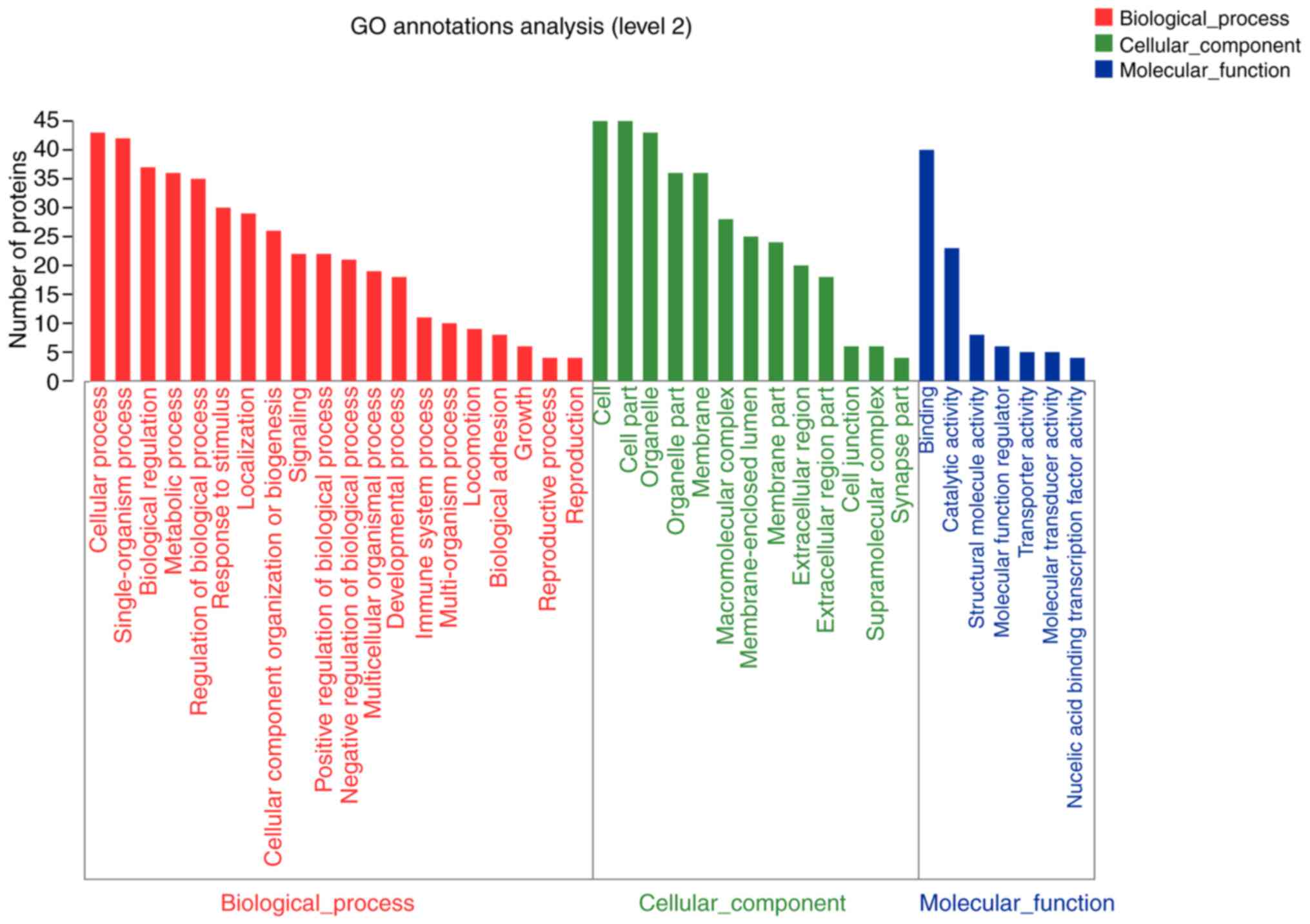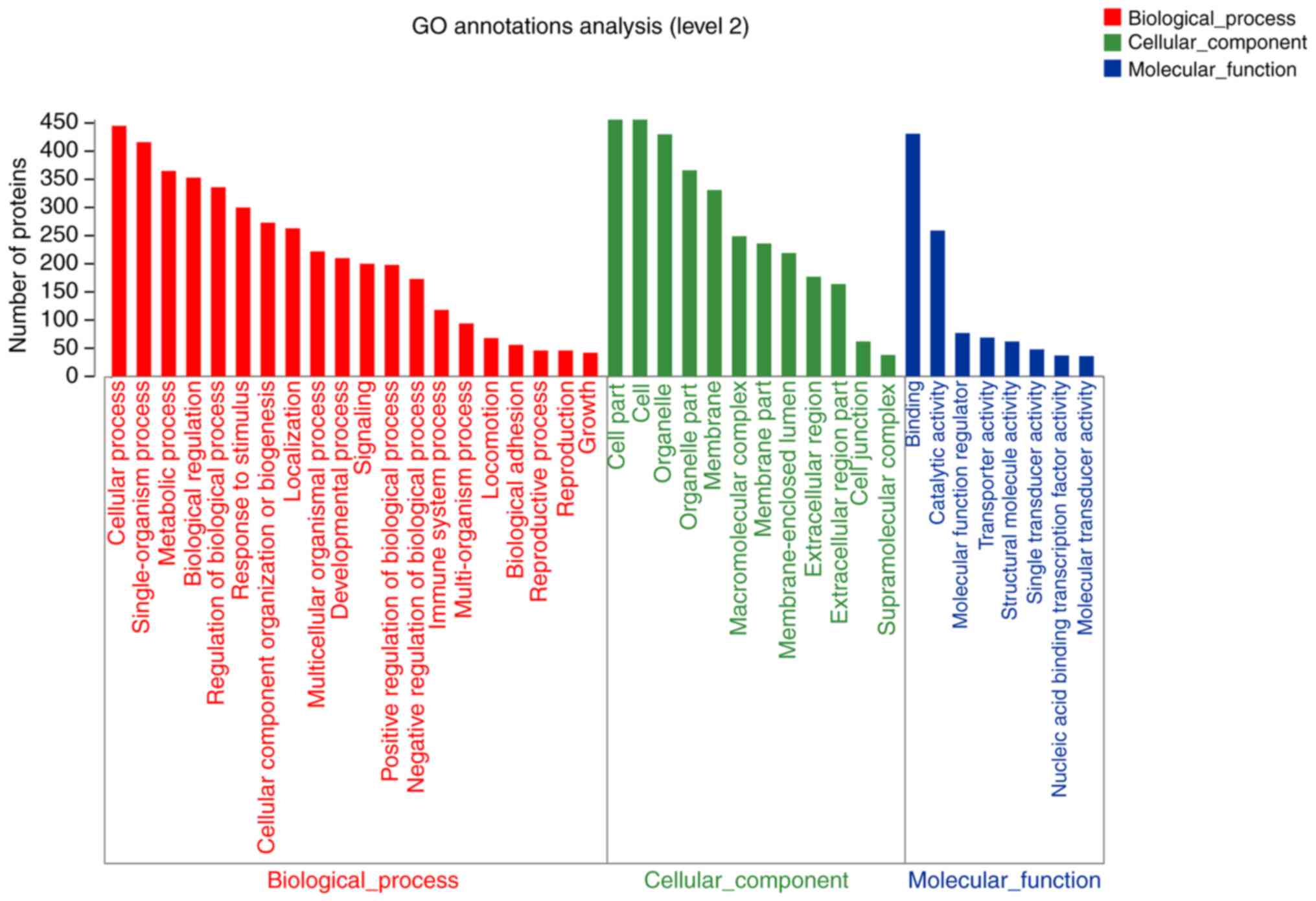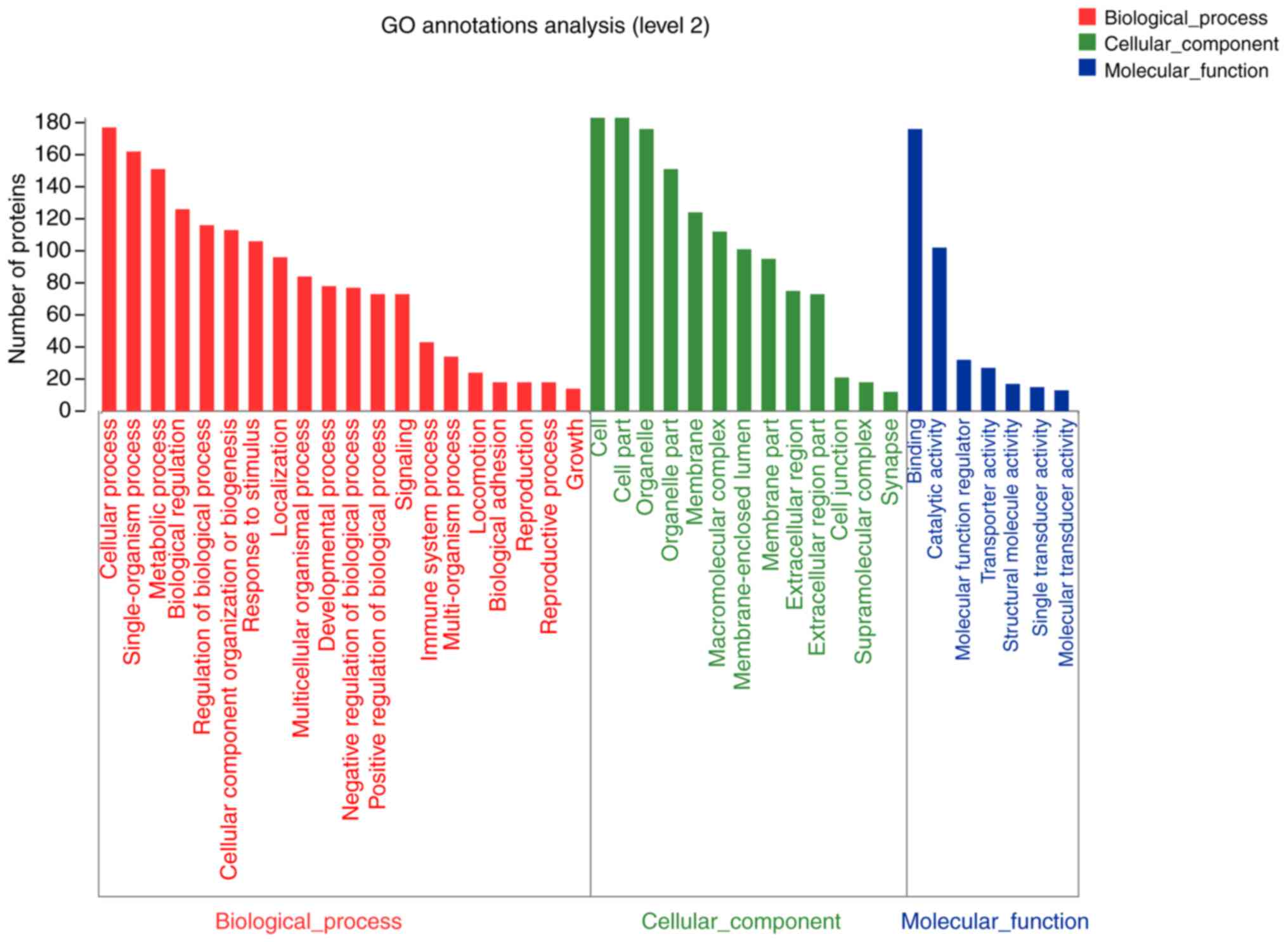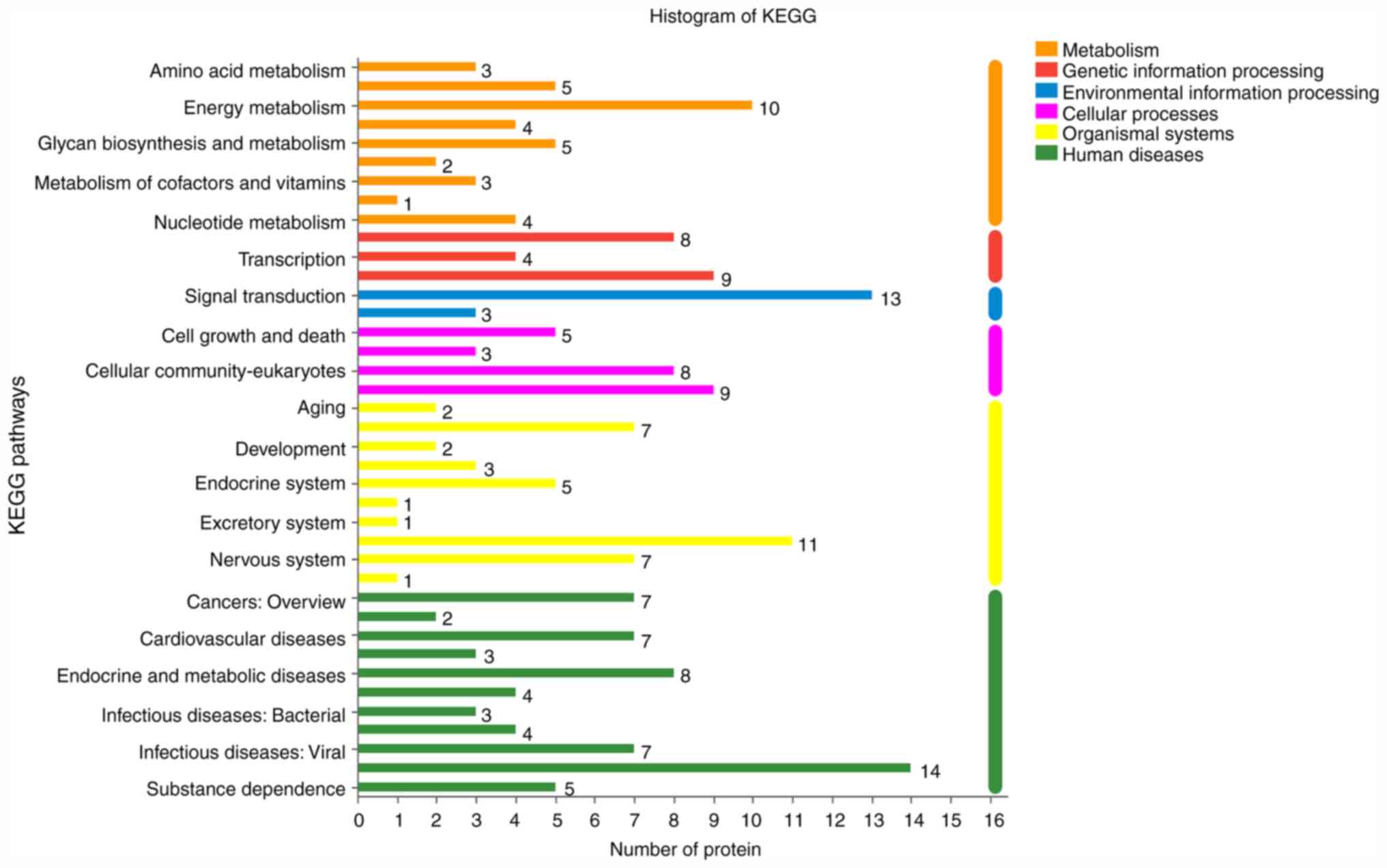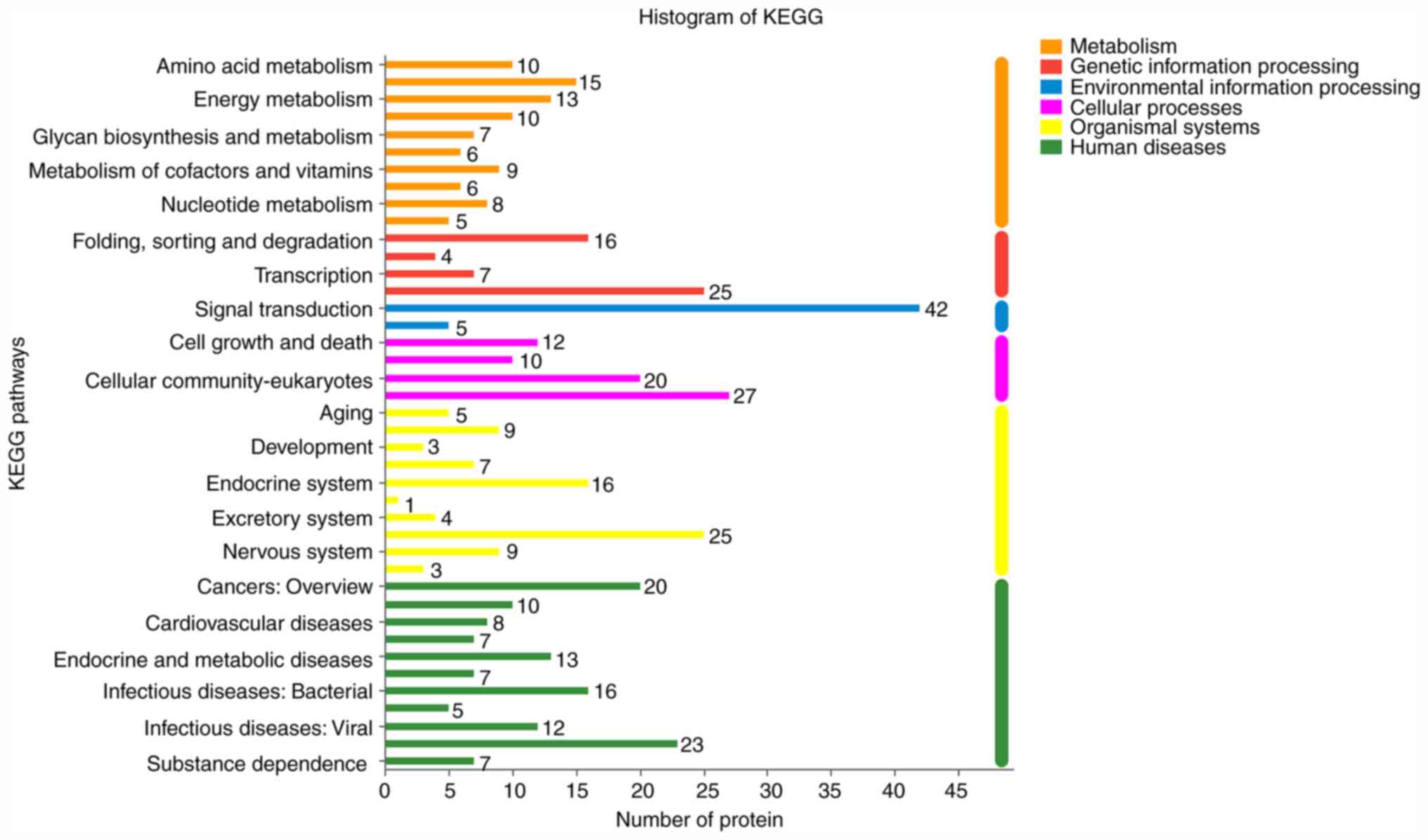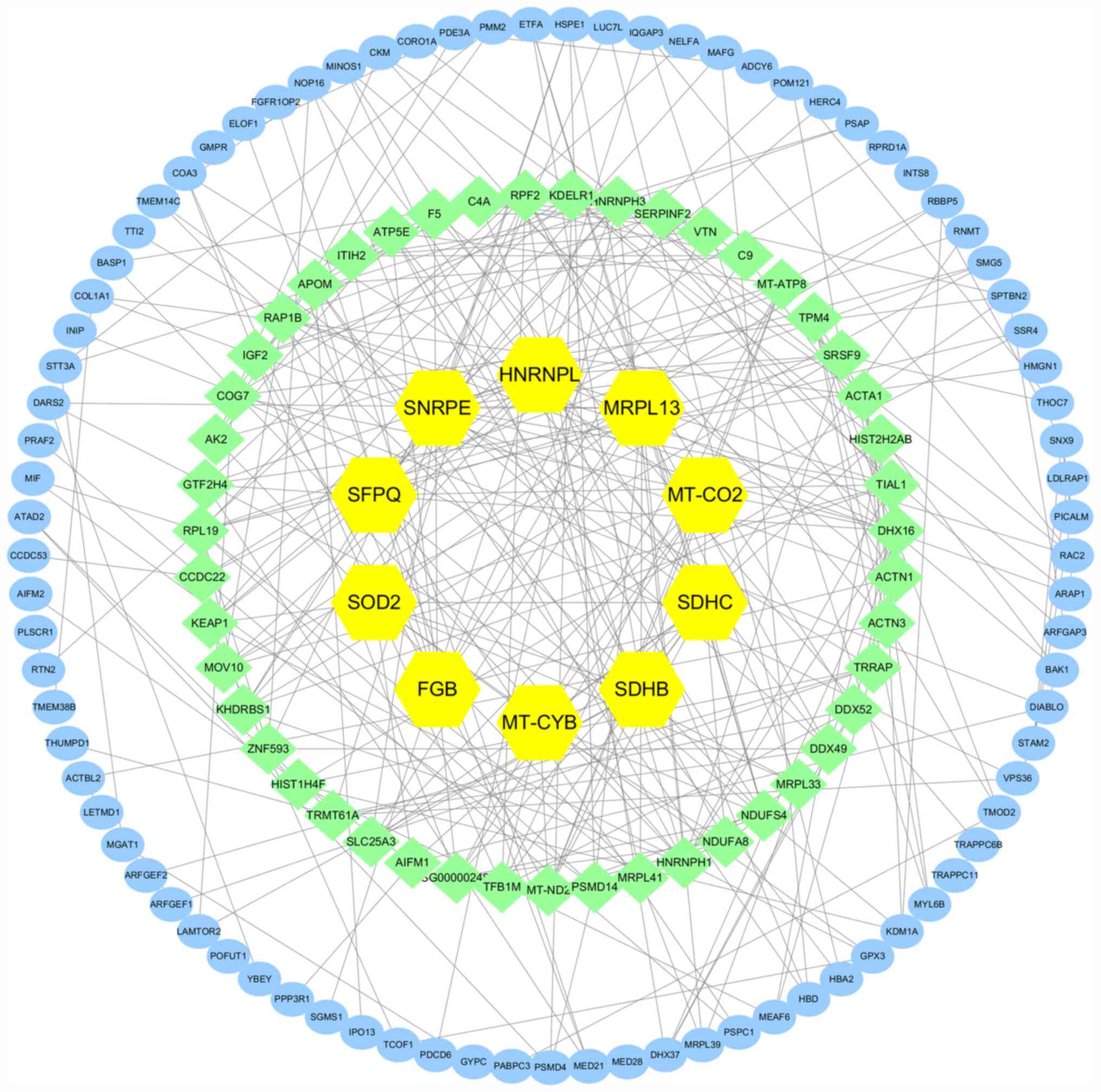|
1
|
Bray F, Ferlay J, Soerjomataram I, Siegel
RL, Torre LA and Jemal A: Global cancer statistics 2018: GLOBOCAN
estimates of incidence and mortality worldwide for 36 cancers in
185 countries. CA Cancer J Clin. 68:394–424. 2018. View Article : Google Scholar : PubMed/NCBI
|
|
2
|
Derouiche S, Warnier M, Mariot P, Gosset
P, Mauroy B, Bonnal JL, Slomianny C, Delcourt P, Prevarskaya N and
Roudbaraki M: Bisphenol A stimulates human prostate cancer cell
migration via remodelling of calcium signalling. Springerplus.
2:542013. View Article : Google Scholar : PubMed/NCBI
|
|
3
|
Kloukos D, Pandis N and Eliades T: In vivo
bisphenol - a release from dental pit and fissure sealants: A
systematic review. J Dent. 41:659–667. 2013. View Article : Google Scholar : PubMed/NCBI
|
|
4
|
Krishnan AV, Stathis P, Permuth SF, Tokes
L and Feldman D: Bisphenol-A: An estrogenic substance is released
from polycarbonate flasks during autoclaving. Endocrinology.
132:2279–2286. 1993. View Article : Google Scholar : PubMed/NCBI
|
|
5
|
Huang YQ, Wong CK, Zheng JS, Bouwman H,
Barra R, Wahlström B, Neretin L and Wong MH: Bisphenol A (BPA) in
China: A review of sources, environmental levels, and potential
human health impacts. Environ Int. 42:91–99. 2012. View Article : Google Scholar : PubMed/NCBI
|
|
6
|
Rogers JA, Metz L and Yong VW: Review:
Endocrine disrupting chemicals and immune responses: a focus on
bisphenol-A and its potential mechanisms. Mol Immunol. 53:421–430.
2013. View Article : Google Scholar : PubMed/NCBI
|
|
7
|
Vom Saal FS, Nagel SC, Coe BL, Angle BM
and Taylor JA: The estrogenic endocrine disrupting chemical
bisphenol A (BPA) and obesity. Mol Cell Endocrinol. 354:74–84.
2012. View Article : Google Scholar : PubMed/NCBI
|
|
8
|
Lui YZ, Zeng GQ, Ge LC, Liu H, Du J and
Wang HS: Bisphenol A induces epithelial mesenchymalization of human
breast cancer MCF-7 cells. Acta Scientiae Circumstantiae.
35:608–612. 2015.(In Chinese).
|
|
9
|
White B: Ginger: An overview. Am Fam
Physician. 75:1689–1691. 2007.PubMed/NCBI
|
|
10
|
Ali BH, Blunden G, Tanira MO and Nemmar A:
Some phytochemical, pharmacological and toxicological properties of
ginger (Zingiber officinale Roscoe): A review of recent
research. Food Chem Toxicol. 46:409–420. 2008. View Article : Google Scholar : PubMed/NCBI
|
|
11
|
Ishiguro K, Ando T, Maeda O, Ohmiya N,
Niwa Y, Kadomatsu K and Goto H: Ginger ingredients reduce viability
of gastric cancer cells via distinct mechanisms. Biochem Biophys
Res Commun. 362:218–223. 2007. View Article : Google Scholar : PubMed/NCBI
|
|
12
|
Jeong C-H, Bode AM, Pugliese A, Cho YY,
Kim HG, Shim JH, Jeon YJ, Li H, Jiang H and Dong Z: [6]-Gingerol
suppresses colon cancer growth by targeting leukotriene A4
hydrolase. Cancer Res. 69:5584–5591. 2009. View Article : Google Scholar : PubMed/NCBI
|
|
13
|
Surh YJ, Park KK, Chun KS, Lee LJ, Lee E
and Lee SS: Anti-tumor-promoting activities of selected pungent
phenolic substances present in ginger. J Environ Pathol Toxicol
Oncol. 18:131–139. 1999.PubMed/NCBI
|
|
14
|
Brahmbhatt M, Gundala SR, Asif G, Shamsi
SA and Aneja R: Ginger phytochemicals exhibit synergy to inhibit
prostate cancer cell proliferation. Nutr Cancer. 65:263–272. 2013.
View Article : Google Scholar : PubMed/NCBI
|
|
15
|
Santos PA SR, Avanço GB, Nerilo SB,
Marcelino RIA, V. Janeiro V, Valadares MC and Machinski M:
Assessment of Cytotoxic Activity of Rosemary (Rosmarinus
officinalis L.), Turmeric (Curcuma longa L.), and Ginger
(Zingiber officinale R.) Essential Oils in Cervical Cancer
Cells (HeLa). ScientificWorldJournal. 2016:92730782016. View Article : Google Scholar : PubMed/NCBI
|
|
16
|
Prasad S and Tyagi AK: Ginger and its
constituents: role in prevention and treatment of gastrointestinal
cancer. Gastroenterol Res Pract. 2015:1429792015. View Article : Google Scholar : PubMed/NCBI
|
|
17
|
Karki N: Inhibitory activity of ginger oil
against breast cancer cells (2011). LSU Master's Theses. 1714.
simplehttps://digitalcommons.lsu.edu/gradschool_theses/1714
|
|
18
|
Brooks SC, Locke ER and Soule HD: Estrogen
receptor in a human cell line (MCF-7) from breast carcinoma. J Biol
Chem. 248:6251–6253. 1973.PubMed/NCBI
|
|
19
|
Ninth Chinese Pharmacopoeia Commission:
Pharmacopoeia of the People's Republic of China (1). China Medical
Science and Technology Press; China: pp. 932010
|
|
20
|
Kan Y, Lyu Q, Jiang N, Han S, Li J,
Burdman S and Luo L: iTRAQ-based proteomic analyses of the
plant-pathogenic bacterium Acidovorax citrulli during entrance into
and resuscitation from the viable but nonculturable state. J
Proteomics. 211:1035472020. View Article : Google Scholar : PubMed/NCBI
|
|
21
|
Gao Z, Wang J, Bai Y, Bao J and Dal E:
Identification and Verification of the Main Differentially
Expressed Proteins in Gastric Cancer via iTRAQ Combined with Liquid
Chromatography-Mass Spectrometry. Anal Cell Pathol.
2019:53106842019. View Article : Google Scholar
|
|
22
|
Szklarczyk D, Gable AL, Lyon D, Junge A,
Wyder S, Huerta-Cepas J, Simonovic M, Doncheva NT, Morris JH, Bork
P, et al: STRING v11: Protein-protein association networks with
increased coverage, supporting functional discovery in genome-wide
experimental datasets. Nucleic Acids Res. 47D:D607–D613. 2019.
View Article : Google Scholar
|
|
23
|
Swaney DL, Wenger CD and Coon JJ: Value of
using multiple proteases for large-scale mass spectrometry-based
proteomics. J Proteome Res. 9:1323–1329. 2010. View Article : Google Scholar : PubMed/NCBI
|
|
24
|
Kanehisa M and Goto S: KEGG: Kyoto
encyclopedia of genes and genomes. Nucleic Acids Res. 28:27–30.
2000. View Article : Google Scholar : PubMed/NCBI
|
|
25
|
Yu LR, Zeng R, Shao XX, Wang N, Xu YH and
Xia QC: Identification of differentially expressed proteins between
human hepatoma and normal liver cell lines by two-dimensional
electrophoresis and liquid chromatography-ion trap mass
spectrometry. Electrophoresis. 21:3058–3068. 2000. View Article : Google Scholar : PubMed/NCBI
|
|
26
|
Unwin RD, Griffiths JR and Whetton AD:
Simultaneous analysis of relative protein expression levels across
multiple samples using iTRAQ isobaric tags with 2D nano LC-MS/MS.
Nat Protoc. 5:1574–1582. 2010. View Article : Google Scholar : PubMed/NCBI
|
|
27
|
Jamaluddin MFB, Nagendra PB, Nahar P,
Oldmeadow C and Tanwar PS: Proteomic Analysis Identifies Tenascin-C
Expression Is Upregulated in Uterine Fibroids. Reprod Sci.
26:476–486. 2019. View Article : Google Scholar : PubMed/NCBI
|
|
28
|
Feifei S and Yinyin W: Research status and
progress of relationship between environmental bisphenol A and
reproductive system malignant tumors. Health Res. 38:532–537.
2018.
|
|
29
|
Lui Q, Hu LG, Zhou QF and Jiang GB:
Tetrabromobisphenol A bis(2-hydroxyethylether) induced dysfunction
of respiratory chain oxidative phosphorylation and energy
metabolism rat pheochromocytoma cells by high performance liquid
chromatography-electrospray ionization-tandem mass spectrometry.
Chinese J Chromatography. 35:1–7. 2017. View Article : Google Scholar
|
|
30
|
Li QX, Zhang P and Liu H: Characteristics
and progress of energy metabolism of tumor cells. Chinese
Pharmacological Bulletin. 33:1499–1502. 2017.
|
|
31
|
Liberti MV and Locasale JW: The Warburg
Effect: How Does it Benefit Cancer Cells? Trends Biochem Sci.
41:2872016. View Article : Google Scholar : PubMed/NCBI
|
|
32
|
Jose C, Bellance N and Rossignol R:
Choosing between glycolysis and oxidative phosphorylation: A
tumor's dilemma? Biochim Biophys Acta. 1807:552–561. 2011.
View Article : Google Scholar : PubMed/NCBI
|
|
33
|
Sharma P and Singh S: Combinatorial Effect
of DCA and Let-7a on Triple-Negative MDA-MB-231 Cells: A Metabolic
Approach of Treatment. Integr Cancer Ther. 19:15347354209114372020.
View Article : Google Scholar : PubMed/NCBI
|
|
34
|
Fan XX, Su N, Huang XJ, Li YF, Jia A, Fan
JP, Wang AF, Zhao NM and Ma YC: Jar-TTA, a natural diterpenoid
derivatives, induces apoptosis in human esophageal cancer cells
through dual inhibition of glycolysis and oxidative
phosphorylation. Chinese Pharmacological Bulletin. 35:950–957.
2019.
|
|
35
|
Guzy RD, Sharma B, Bell E, Chandel NS and
Schumacker PT: Loss of the SdhB, but Not the SdhA, subunit of
complex II triggers reactive oxygen species-dependent
hypoxia-inducible factor activation and tumorigenesis. Mol Cell
Biol. 28:718–731. 2008. View Article : Google Scholar : PubMed/NCBI
|
|
36
|
Goffrini P, Ercolino T, Panizza E, Giachè
V, Cavone L, Chiarugi A, Dima V, Ferrero I and Mannelli M:
Functional study in a yeast model of a novel succinate
dehydrogenase subunit B gene germline missense mutation (C191Y)
diagnosed in a patient af-fected by a glomus tumor. Hum Mol Genet.
18:1860–1868. 2009. View Article : Google Scholar : PubMed/NCBI
|
|
37
|
Guzy RD, Sharma B, Bell E, Chandel NS and
Schumacker PT: Loss of the SdhB, but Not the SdhA, subunit of
complex II triggers reactive oxygen species-dependent
hypoxia-inducible factor activation and tumorigenesis. Mol Cell
Biol. 28:718–731. 2008. View Article : Google Scholar : PubMed/NCBI
|
|
38
|
Slane BG, Aykin-Burns N, Smith BJ, Kalen
AL, Goswami PC, Domann FE and Spitz DR: Mutation of succinate
dehydrogenase subunit C results in increased O2.-,
oxidative stress, and genomic instability. Cancer Res.
66:7615–7620. 2006. View Article : Google Scholar : PubMed/NCBI
|
|
39
|
Zelko IN, Mariani TJ and Folz RJ:
Superoxide dismutase multigene family: A comparison of the CuZn-SOD
(SOD1), Mn-SOD (SOD2), and EC-SOD (SOD3) gene structures,
evolution, and expression. Free Radic Biol Med. 33:337–349. 2002.
View Article : Google Scholar : PubMed/NCBI
|
|
40
|
Han H, Yang S, Lin SG, Xu CS and Han ZH:
Effects and mechanism of downregulation of COX 2 expression by RNA
interference on proliferation and apoptosis of hu-man breast cancer
MCF 7 cells. Mol Med Rep. 10:3092–3098. 2014. View Article : Google Scholar : PubMed/NCBI
|
|
41
|
Gomez-Lazaro M, Galindo MF,
Melero-Fernandez de Mera RM, Fernandez-Gómez FJ, Concannon CG,
Segura MF, Comella JX, Prehn JH and Jordan J: Reactive oxygen
species and p38 mitogen-activated protein kinase activate Bax to
induce mito-chondrial cytochrome c release and apoptosis in
response to malonate. Mol Pharmacol. 71:736–743. 2007. View Article : Google Scholar : PubMed/NCBI
|
|
42
|
Liot G, Bossy B, Lubitz S, Kushnareva Y,
Sejbuk N and Bossy-Wetzel E: Com plex II inhibition by 3-NP causes
mitochondrial fragmentation and neuronal cell death via an NMDA-
and ROS-dependent pathway. Cell Death Differ. 16:899–909. 2009.
View Article : Google Scholar : PubMed/NCBI
|
|
43
|
Balsa E, Marco R, Perales-Clemente E,
Szklarczyk R, Calvo E, Landázuri MO and Enríquez JA: NDUFA4 is a
subunit of complex IV of the mammalian electron transport chain.
Cell Metab. 16:378–386. 2012. View Article : Google Scholar : PubMed/NCBI
|
















